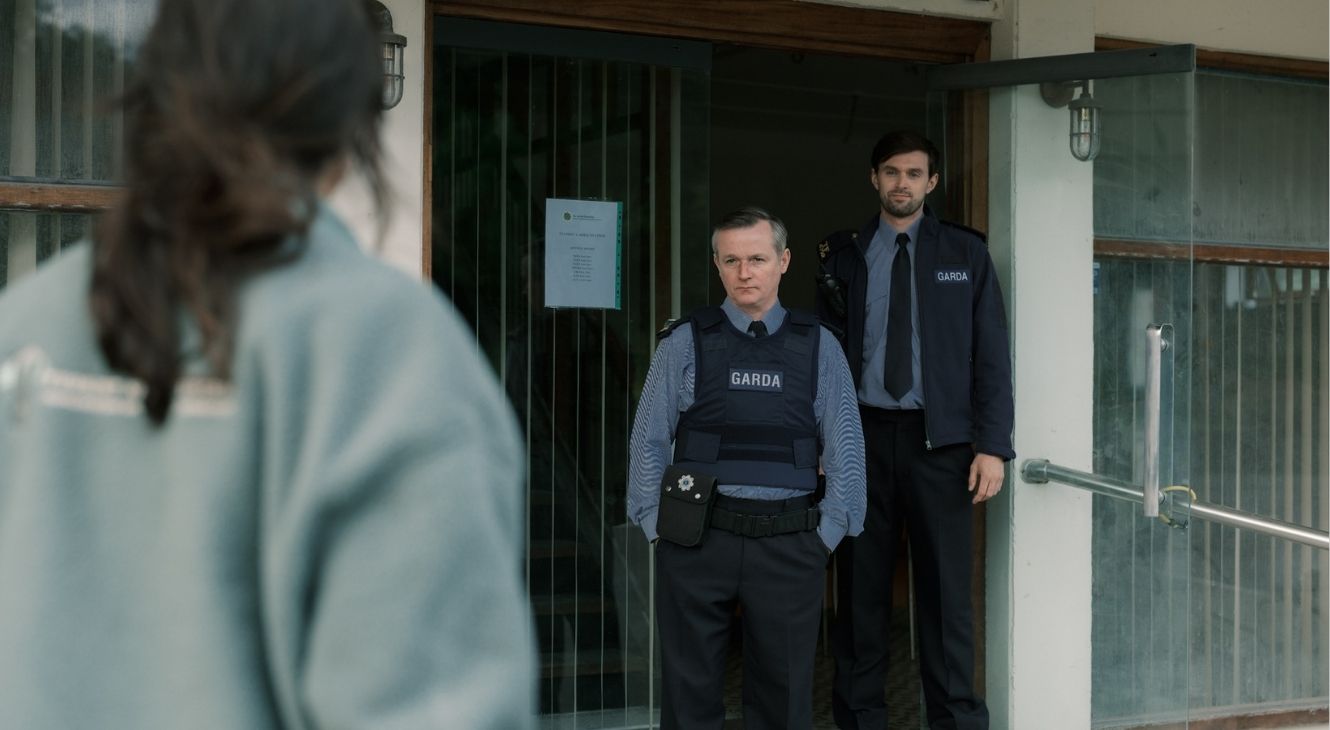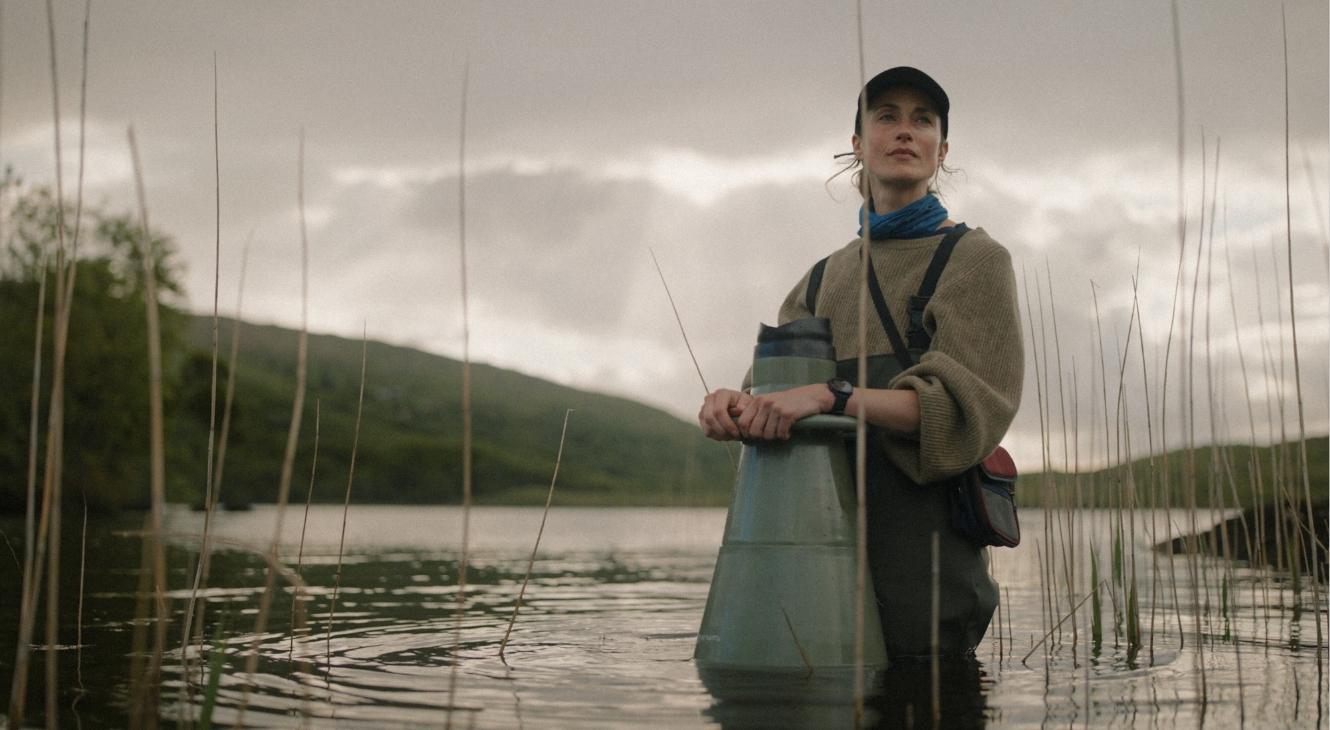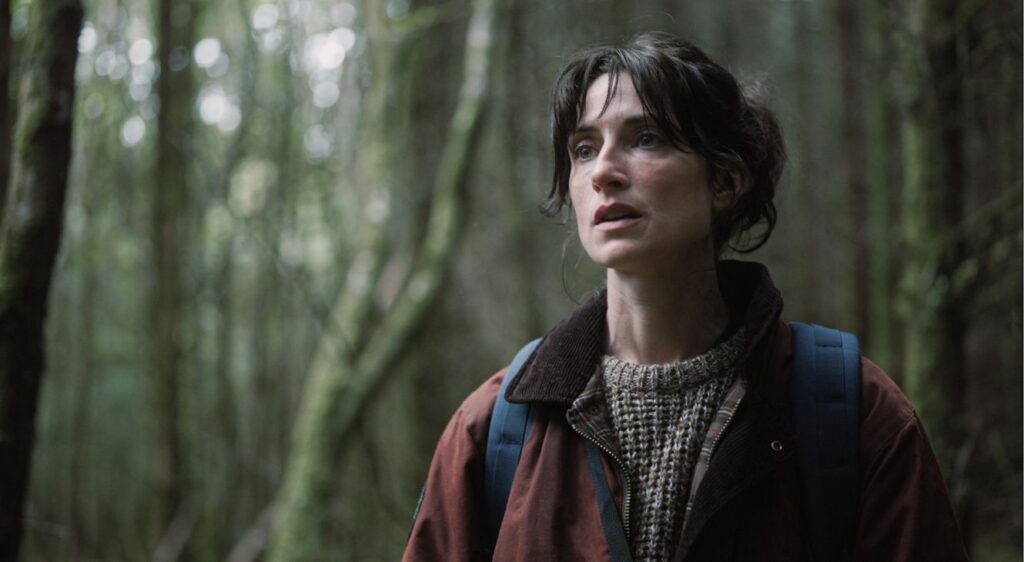Deep within the recesses of the natural Irish landscape, Whitetail finds itself grappling with a woman’s deep-seated, unresolved trauma while trying to unearth the slow-rolling mystery surrounding poachers encroaching on this protected land. In writer/director Nanouk Leopold‘s latest feature, the film is more a meditative drama rather than a thriller, characterized by its languid pace and quiet edge. With the scenery as much of a character as Natasha O’Keeffe’s Jen, Whitetail requires some patience as Jen wades through internal choppy waters.
Leopold makes a bold choice, revealing the inciting traumatic incident in the beginning. It’s a snapshot into how Jen used to be—light and free, not a care in the world. In this blissful state of being with her then-paramour, Oscar, the Irish forest is magical, open to all of her desires, yet also home to her secrets. Once the horror hits, there is an immediate understanding. However, it’s unclear whether or not revealing the incident so early helps or hinders Whitetail.
Cut to the present day, where the now-adult Jen (Natasha O’Keeffe) works as a forest ranger. Every element of her life is tethered to the tragedy, keeping her from being able to move on. As her father, Daniel (Andrew Bennett), loosely puts it, it’s like she’s trapped in tar. News of her ex-boyfriend’s (Aaron McCusker) return sparks an awakening of sorts in Jen.
It’s messy, self-destructive, and uncomfortable, pushing even further away those already struggling to know how to deal with her. As the isolation increases and the poaching situation intensifies, she finds herself at a crossroads, where decisions must be made or else the fragile hold she has on everything will slip away.
Whitetail deals heavily in the crossroads of trauma work, where tough truths need to be confronted.

Whitetail takes its time, honing in on its central character and her attempts to finally address what’s going on. As outsiders to the situation with equal knowledge of the tragedy that has passed, we join the ranks of those around Jen, waiting for her to get help. Anyone familiar with the psyche of trauma work will know this is easier said than done, but the process on screen can make for frustrating viewing as we’re left watching a woman lash out at not herself and those around her.
Despite this, Natasha O’Keeffe fills the space with her performance. Her Jen is troubled and pained, yet there is an air of restraint as she tries to pretend she’s okay. The more Jen loses control of her surroundings, however, O’Keeffe lets the slip in Jen’s armor show. Like a tightly wound string, it’s all too believable to see how easily Jen can snap, and Oscar’s return adds just enough tension to push Jen over the edge.
Jen finds solace in her job, where she works to preserve and protect the forest. The forest, as well as the larger natural environment, plays a more symbolic role here, with Frank van den Eeden’s lens framing it as both prison and sanctuary. The forest is not only home to many creatures, but also a tomb for Jen’s memories. It isn’t until Jen starts to heal that the natural environment starts opening up, giving way to new possibilities.
Natasha O’Keeffe’s approach to Jen makes this journey worth sticking around for.

The forest is full of life and death, with the fear of the latter manifesting itself in ominous, yet ethereal dreamscapes filled with beetles, creatures that pick away at dead matter and tissue to survive. It isn’t until she finds inner peace that the natural environment takes on a brighter, open appearance. If dialogue were to be stripped away, the visual language Leopold and Jordan have woven together would still speak volumes.
More puzzling is the inclusion of the poachers into the storyline to instill a more thriller slant. While the mystery surrounding their involvement is there, it is almost a distraction. One could interpret the poachers as symbolic in some way, a growing threat of some kind, or perhaps a metaphor for the things Jen cannot control. Even still, this running subplot doesn’t entirely pay off, making it a wasted opportunity.
Whitetail is a slow-burning, character-driven piece that requires some level of patience. By revealing the source of trauma early on, the mystery that could have added more tension is removed, and instead, we lay witness to a woman trying to sort her life out. This isn’t necessarily a bad thing, but as a film labeled a thriller, the lack of an enticing mystery is a drawback.
Whitetail is better recommended as a character drama rather than a thriller, with Natasha O’Keeffe’s performance central to the film’s success as a meditative, slow-burn drama confronting the complexities and frustrations of trauma work head-on.
Whitetail had its world premiere at the 2025 Toronto International Film Festival.
Whitetail
-
Rating - 6.5/106.5/10
TL;DR
Whitetail is a slowburn, character-driven piece that requires some level of patience, dependent on the viewer.







